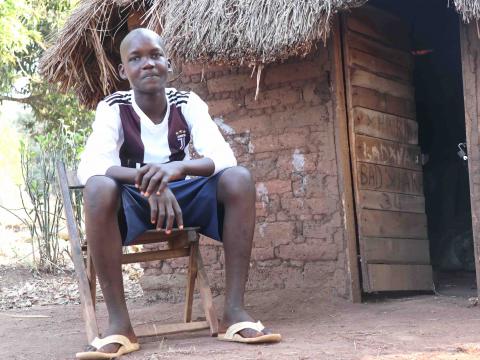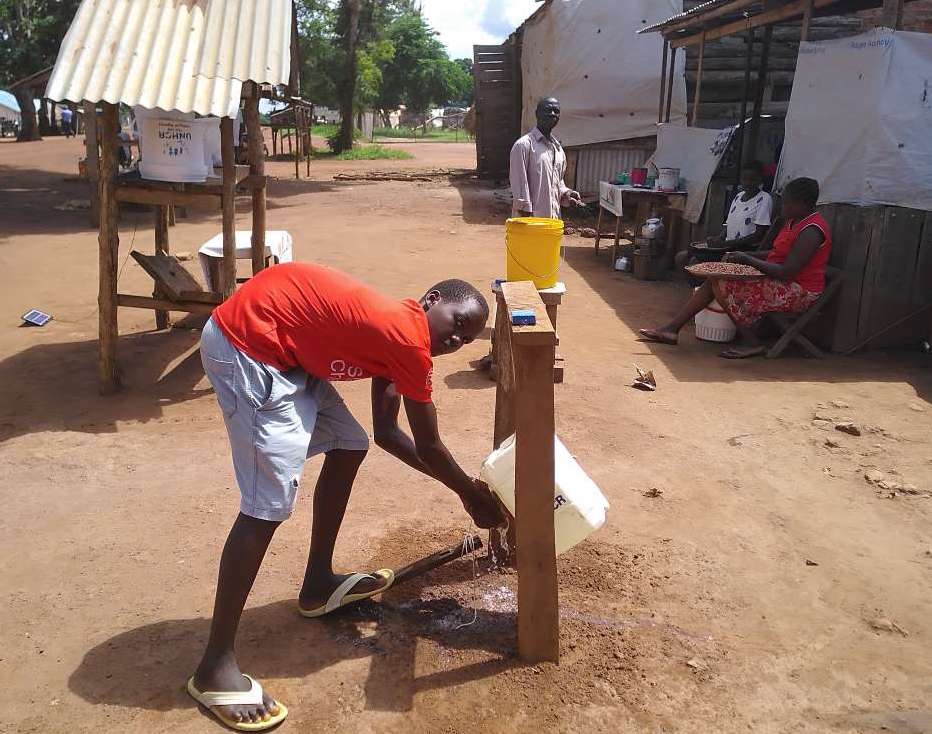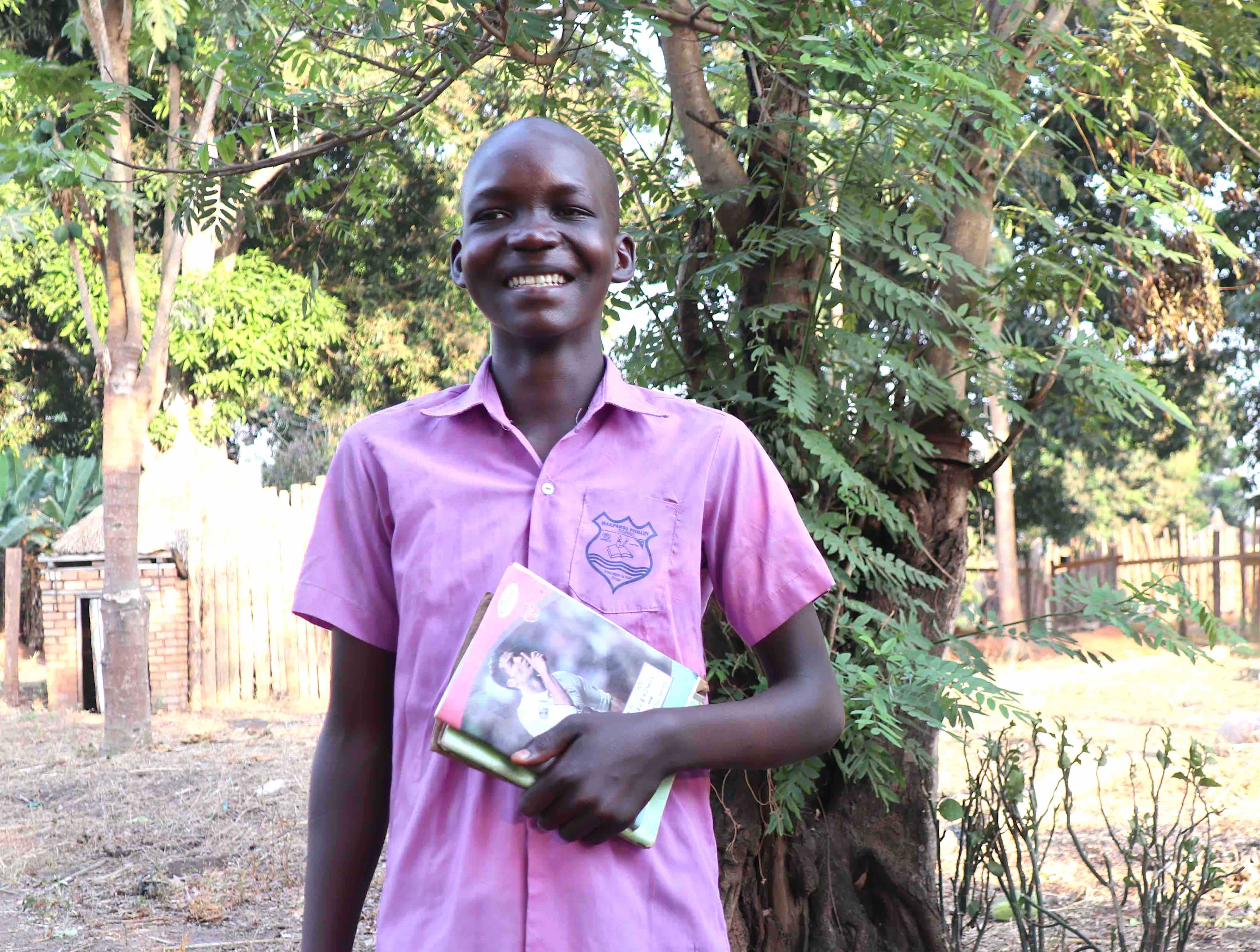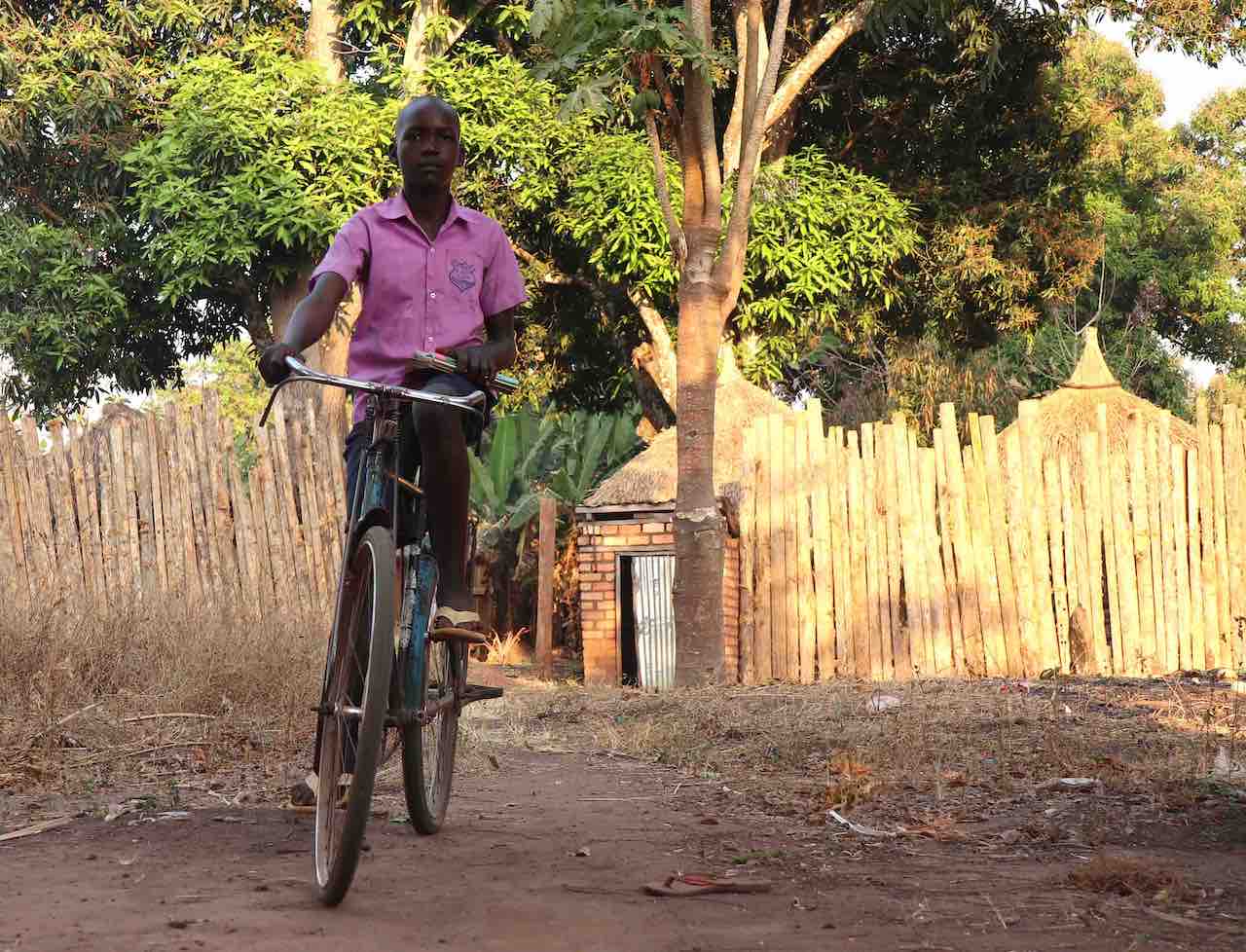Amid COVID-19, Congolese teenager in refugee camp dreams of sharing story to inspire others

“I want to become a teacher and share my story to inspire children like me. But I fear this dream might be affected by COVID-19”, says Mborikinaho Jean, a 16-year old refugee from the Democratic Republic of Congo. “I was brought to Makpandu when I was four years old by my grandmother and uncle who took care of me. My mother died when I was a baby and nobody knows who my father is”, he adds.
Due to hostilities, Jean’s family moved from Dungu, a village in the Democratic Republic of Congo to the border near South Sudan, finally making their way to Makpandu Refugee Camp in 2008. “My grandmother said we moved away from home due to conflict and abductions. There were also no schools for children like me to study, no health services and food”, Jean adds.
He depended on his grandmother and uncle and never expected that they would be separated when they both died in 2019. Now studying in primary five, Jean is hopeful after what he has gone through. “In the refugee camp, I have access to free education, health service, and food. I am thankful. I live peacefully among the people around me”, he says.

An estimated 52 percent of the 5,131 refugees in South Sudan’s Makpandu Refugee Camp are children like Jean who fends for himself after losing their families. “World Vision has established community-based protection structures such as the community mobilizers and child protection committees who monitor the situation of children, such as those separated from families, unaccompanied and with a disability”, says Orach Godfrey Otobi, World Vision’s Project Manager.
Otobi adds, “Through these committees, the child rights violations and the children’s psychosocial needs are also monitored. The members make sure that children like Jean are supported to live a normal life in the camp, they have access to essential services like food assistance, education, health, and psychosocial support.”
COVID-19 has closed down school and impacted my education. My future is threatened and I do not know when classes will open again. I believe that education has replaced the mother and father I lost and without it, I will also lose my future.
World Vision established a child-friendly space that offers children emotional, physical, social, and cognitive development. Children are assisted to express their feelings through drawings, songs, storytelling, bible sharing, dancing, and games. Jean says, “I feel lonely at times. I struggle to cook my own food after school. I want to return to my own country but I do not even know where I come from.”
Jean is worried his future will be affected due to the pandemic. He shares, “COVID-19 has closed down school and impacted my education. My future is threatened and I do not know when classes will open again. I believe that education has replaced the mother and father I lost and without it, I will lose my future.”

COVID-19 has created so much fear in children like Jean saying his mental growth is at stake. He says, “I cannot play football with my friends anymore. These activities with them are my way of forgetting the sad memories of losing my parents. My dream to become a teacher to give hope to others will be lost if this continues.”
But Jean finds positivity amidst all the pain. “I thank God my late parents gave me a name that reminds me of hope. Mbolikiniho means “God is here” thus God will be present in my life especially amid COVID-19”, he shares. When he lost his grandmother, Jean used the cash assistance provided to him to find food. “I am thankful to World Vision for being with me”, Jean adds.
The COVID-19 campaign has been mainstreamed into protection and all other services rendered in the community to reduce stigma in the refugees as well as establish facilities such as hand washing buckets, tippy taps, soap, hand sanitizers, and enough water supply have been put in common places and offices to increase handwashing.
World Vision provides training to youth and women on livelihoods that can help families generate income supported by UNHCR, World Vision New Zealand, and World Vision Korea. Every year, a group of youth is selected to attend vocational training in various trades, such as carpentry, electrical installation, masonry, tailoring, hairdressing, and motor vehicle mechanics. These are intended to prepare them for life in the camp and after they return to their home country or a third country.

More on World Vision's work in Makpandu Refugee Camp in South Sudan: A single mother from the Democratic Republic of Congo defies odds for her children
Story and photos by Scovia Faida Charles Duku, Communications Officer